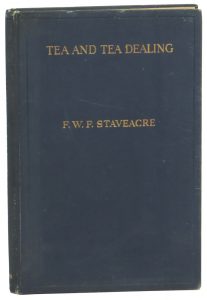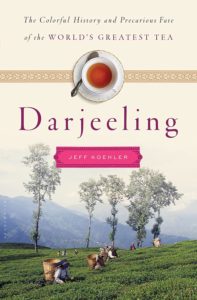 Koehler’s descriptions paint a very visual narrative; having read several more technical, dry manufacturing guides on Sri Lankan and Indian tea processing, this is a welcome change. In his Acknowledgements at the back of the book, Koehler talks about the research he did for this book, and how although he consulted many records and books, the majority of what he documented came from staying at the gardens, talking to planters and pickers and meeting interesting characters to learn Darjeeling’s story. Continue reading
Koehler’s descriptions paint a very visual narrative; having read several more technical, dry manufacturing guides on Sri Lankan and Indian tea processing, this is a welcome change. In his Acknowledgements at the back of the book, Koehler talks about the research he did for this book, and how although he consulted many records and books, the majority of what he documented came from staying at the gardens, talking to planters and pickers and meeting interesting characters to learn Darjeeling’s story. Continue reading
Tag: india
Book: Tea and Tea Dealing
Unsurprisingly, I picked this book out at the library for its blending section. I like reading first-hand, antiqued accounts of what goes into blends, and many of these works include sample recipes with the logic behind them. It puts a lot of stuff into context. Learning about old tea preferences, old blending nomenclature. I also come across a lot of defunct tea names.
These I’ve started keeping a log of (oonfa, oopack) to try and puzzle out what they’re referring to. Mbanu’s notes on teaforum.org help greatly; he’s done basically 100% of the legwork.
Book: Tasting Qualities
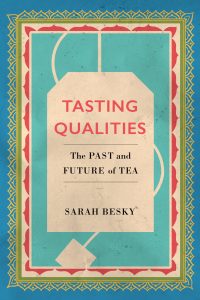 This book has been on my list for a while, especially as Besky has another work out (“The Darjeeling Distinction”); but it wasn’t something I was going out of my way to track down. The synopsis given for this book was unclear, and that prevented me from picking it up sooner. When I did, it was because I spotted it on the shelf at a secondhand bookshop. Which is usually where I scoop most of my purchases.
This book has been on my list for a while, especially as Besky has another work out (“The Darjeeling Distinction”); but it wasn’t something I was going out of my way to track down. The synopsis given for this book was unclear, and that prevented me from picking it up sooner. When I did, it was because I spotted it on the shelf at a secondhand bookshop. Which is usually where I scoop most of my purchases.
I definitely underestimated it, and this book ended up pretty heavily tabbed when I was done with it. I think it’s a solid read, something I’m happy to keep on my shelf.
Book: A Brief History of Tea
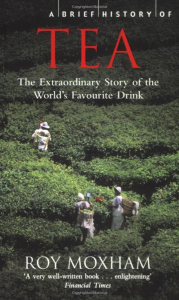 This is an oldy but a goody, first published in 2003, and an easy, affordable buy at most bookstores back in the day (I think I paid $5 for this off of the clearance pile at Chapter’s).
This is an oldy but a goody, first published in 2003, and an easy, affordable buy at most bookstores back in the day (I think I paid $5 for this off of the clearance pile at Chapter’s).
Moxham has written a few books on history, largely focusing on India, and two on tea: “A Brief History of Tea” and “Tea: Addiction, Exploitation and Empire”. Moxham himself worked as a tea planter in Africa, and the book opens and closes with his own account of his first few years settling as a tea planter, having no previous experience. He manages an estate, learns the language, and recounts the conditions his workers faced. Continue reading
Legg-Cut Tea Production
The mechanical evolution of tea production began as early as the 1880s,2 attempting to modernize and streamline the traditional Chinese techniques brought to India. These early machines often dealt with the time-consuming methods of rolling, drying and firing, and improving upon existing orthodox techniques. The early 1900s saw the rise of unorthodox manufacture, exploring different means and ‘shortcuts’ in leaf disruption (focusing on leaf maceration to kickstart fermentation, or to forego withering). These two eras correlate with Harler’s third and fourth Phases of tea making, respectively.2
Book: Tea Manufacture, by C.R. Harler
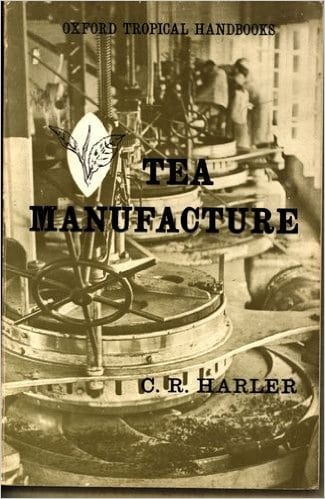 Whereas I called Tea Processing the spiritual sequel to Harler’s Tea Growing (as it draws from many different resources, but does take largely after Harler’s handbooks), this is the actual sequel (technically in terms of publication dates, prequel). It picks up where Tea Growing leaves us with the proper plucking technique and storage of fresh leaf matter. Continue reading
Whereas I called Tea Processing the spiritual sequel to Harler’s Tea Growing (as it draws from many different resources, but does take largely after Harler’s handbooks), this is the actual sequel (technically in terms of publication dates, prequel). It picks up where Tea Growing leaves us with the proper plucking technique and storage of fresh leaf matter. Continue reading
Book: Tea Marketing Systems in Bangladesh, China, India, Indonesia, and Sri Lanka
This would be the book I picked up from my university library some time before Christmas. I feel a bit apologetic writing about a book that, as far as I’ve been able to find out, is just about impossible to obtain. There is a short inscription on the back of the book regarding messaging the United Nations for publications, but it seems to imply that if your local bookstore doesn’t carry it, you’re out of luck.
The UN, however, does seem to have a lot of their articles and books published online now. Although this publication isn’t among them (I know, I spent a tireless evening looking for it, because I liked this enough to want a copy on-hand [though it WAS published in 1996]), I wonder if emailing them might prompt them to post this and similar works online.




